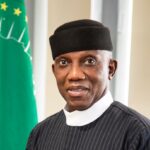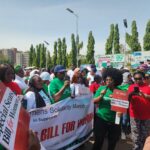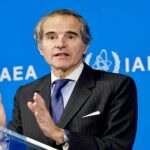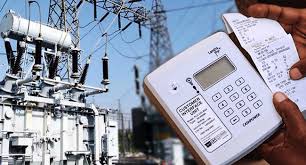By Folasade Akpan, News Agency of Nigeria (NAN)
Power is often described as the lifeblood of modern society.
Without it, daily life becomes almost unbearable.
In Nigeria, the epileptic electricity supply has crippled many sectors, but none has felt the impact more severely than the health sector.
From emergency surgeries to routine diagnostics, reliable electricity is crucial to saving lives.
Yet, hospitals across the country continue to grapple with frequent power outages, mounting debts, and soaring energy costs.
A vivid example was the disconnection of the University College Hospital (UCH), Ibadan, from the national grid by the Ibadan Electricity Distribution Company (IBEDC) in 2024, due to unpaid debts running into millions of naira.
With monthly bills of about N99 million, the hospital was plunged into darkness for over 100 days.
Patients and their relatives lamented delays in treatment and diagnostics.
One patient’s relative, identified as Tunji, said test results that should take six hours were delayed for up to 80 hours.
“The results are now handwritten instead of printed, making them prone to errors. Babies cannot be admitted promptly into the newborn unit because incubators and warmers lack power,” he said.
A hospital worker, who preferred anonymity, acknowledged management’s efforts in installing solar inverters in the intensive care and emergency units.
However, the source admitted that the intervention was grossly inadequate.
“The inverters cover only about 50 beds out of more than 1,000. Surgeries have reduced significantly, and many patients cannot access emergency procedures,” the source said.
The situation eventually escalated into industrial action by health workers who cited poor working and living conditions.
A similar crisis brewed at the Aminu Kano Teaching Hospital (AKTH), where the Kano Electricity Distribution Company (KEDCO) threatened to disconnect the facility in September over a N949.88 million debt.
A temporary reprieve came only after the hospital separated its main campus from staff quarters.
Relief, however, arrived on Sept. 17, when the Federal Government inaugurated a 4-megawatt solar hybrid power system with full battery storage at the hospital.
According to the Minister of Innovation, Science and Technology, Chief Uche Nnaji, the project is designed to ease the financial and operational burden of powering the facility.
He disclosed that the hospital had previously spent N1.6 million daily on diesel; a model he described as “unsustainable”.
These developments underscore the magnitude of Nigeria’s power crisis in the health sector, prompting the Federal Government to convene the first National Stakeholders’ Dialogue on Power in the Health Sector.
The two-day event, held on Sept. 9 and Sept. 10 in Abuja, brought together government officials, private sector leaders, and development partners.
It was themed, “Powering Health through Public-Private Synergy: Energising Nigeria’s Health Sector for the Future”.
At the meeting, stakeholders highlighted the heavy toll of poor electricity on healthcare delivery.
Minister of State for Health, Dr Iziaq Salako, revealed that 40 per cent of functional Primary Healthcare Centres (PHCs) operate without power.
He said tertiary hospitals spend between N20 million and N180 million monthly on electricity, with fuel costs consuming up to half of their budgets.
“Our health system is not only underpowered but also inefficiently powered. This must be urgently addressed if our healthcare reforms are to succeed,” he stated.
Coordinating Minister of Health and Social Welfare, Prof. Muhammad Pate, stressed that reliable electricity is not optional but essential.
“Power is health. Without electricity, vaccines spoil, surgeries stall, and lives are lost,” he warned.
Similarly, Minister of Power, Mr Adebayo Adelabu, said the government, through the Rural Electrification Agency (REA), had begun deploying solar hybrid mini-grids to health facilities nationwide.
He cited the 12MW solar system at the University of Maiduguri Teaching Hospital and the 7MW system at the University of Calabar Teaching Hospital as examples of progress.
Experts at the dialogue agreed that addressing the challenge would require innovative financing and private sector participation.
Also, Director-General of the Infrastructure Concession Regulatory Commission (ICRC), Mr Jobson Ewalefoh, called for the adoption of Public-Private Partnerships (PPPs).
He noted that Nigeria’s power sector alone accounts for 759 billion dollars of the country’s 2.3 trillion dollars infrastructure deficit projected up to 2043.
Private healthcare providers also raised concerns about being excluded from ongoing reforms.
President of the Healthcare Federation of Nigeria (HFN), Mrs Njide Ndili, warned that neglecting private hospitals in energy interventions could undermine care delivery for most Nigerians.
She noted that private facilities provide over 60 per cent of healthcare services in the country.
She cited a survey indicating that energy consumes up to 40 per cent of operational costs in some private hospitals, resulting in an 88 per cent rise in patient bills and a 46 per cent decline in quality of care.
“Powering healthcare means powering lives. If energy solutions exclude the private sector, we will fail to reach most Nigerians,” she cautioned.
President Bola Tinubu, represented by the Secretary to the Government of the Federation, Sen. George Akume, at the event reaffirmed the administration’s commitment to tackling the challenge through the Renewed Hope Agenda.
He said the government would focus on expanding off-grid solar and hybrid systems, encouraging PPPs, and promoting innovative financing models such as green bonds.
“This dialogue must not be a mere talkshop. It must produce actionable outcomes,” he emphasised.
At the close of the dialogue, stakeholders signed a compact to improve power supply in health institutions by at least 50 per cent within two years.
The agreement outlined key steps, including creating a national coordination framework, embedding energy planning into health programmes, and improving electricity access for rural health facilities.
For patients, doctors, and communities, the consensus offers renewed hope that Nigerian hospitals may soon enjoy steady power.
This marks a crucial step toward saving lives and revitalising the nation’s health sector. (NANFeatures)
***If used, please credit the writer and the News Agency of Nigeria.












